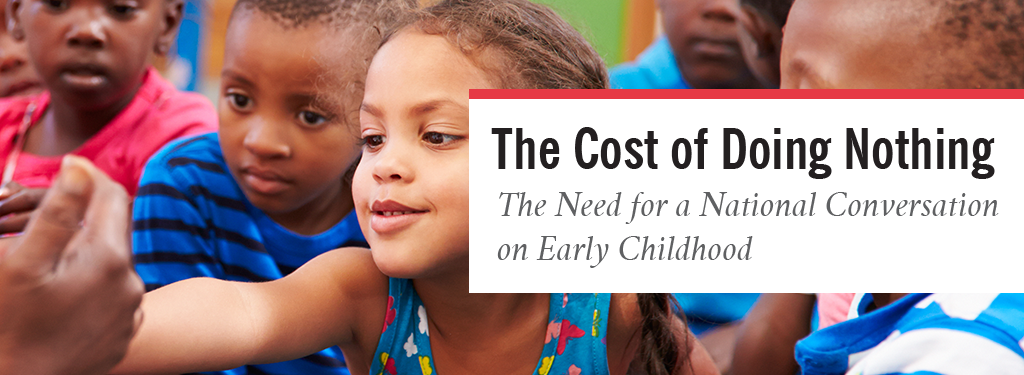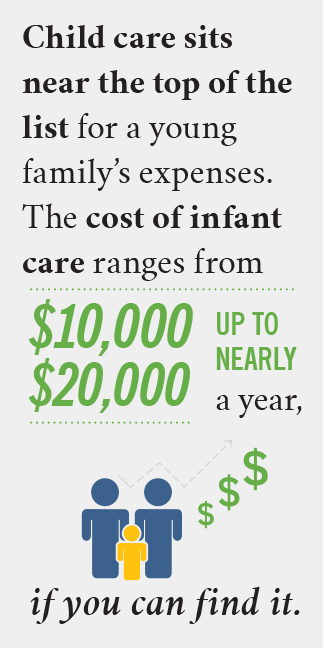Most Americans agree that children need support to thrive, particularly in the crucial first few years of life. However, despite broad consensus on the importance of this time in a child’s life, we continue to debate how to best support parents so they can provide caring and enriching environments for their children. The debate can be healthy but it needs to lead to concrete action. We believe there are several short-term and longer-term steps we can take, in a bipartisan fashion, to improve early childhood care and education in this country.
Today, most families have two parents in the workforce and a critical part of American family life involves some form of child care. Parents’ ability to balance work responsibilities with the needs of their children frequently results in overly stressed parents, which in turn can have negative consequences for everyone— children, parents, and employers alike. Report after report shows that quality child care, if available, is expensive and beyond the reach of many working families. This is particularly true for families living below 200 percent of the poverty level, although low-income families are not the only ones experiencing stress resulting from child care. Child care sits near the top of the list for a young family’s expenses. The cost of infant care ranges from $10,000 up to nearly $20,000 a year, if you can find it. Ask any new parent who has tried to find child care for an infant lately. Most are in complete shock; first about how difficult it is to find it and then (if they do find it) about the cost.




